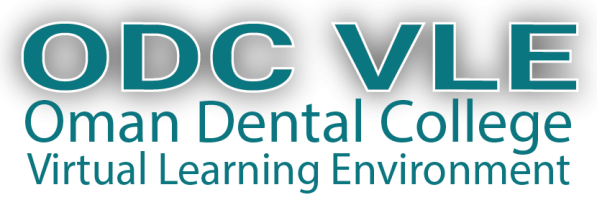General Embryology and Genetics
General Embryology & Genectics (GEG) aims to provide students with learning experiences in Embryology and Genectics to form a foundation for the dental and oral sciences and a basis for progression to the practice of dentistry where application of knowledge in dental interventions is required.
There are clear links with the BDS I GAH course, where many concepts have a theoretical foundation drawn from human anatomy. During the course, students observe aspects of clinical practice, which are a direct application of an understanding of human growth and development to health care.
Research Practicum 1
Num Code: 1.1.2.4
Entrepreneurship, Creativity and Innovation 1
Num Code: 1.1.2.3
English for Dentistry 2
Num Code: 1.1.2.1
Biostatistics
Num Code: 1.1.2.2
General Anatomy and Histology
There are clear links with the BDS I GEG course, where many concepts have a theoretical foundation drawn from the human body growth and development . During the course, students observe aspects of clinical practice, which are a direct application of an understanding of human anatomy to health care.
Anatomy of Thorax
(ATH 1.2.1.11)
The principal components of this module focus on the topographical regional anatomy of the thorax which are essential for safe and effective clinical dental practice.
The module covers:
· Structures in the Thorax
Arteries, Veins and Lymphatics in the Thorax in connection with the Head and Neck.
Head & Neck Embryology
The principal components of this module focus on the embryological development of the head, face and jaws is corelated with the teaching of t Anatomy of the Head and Neck
Entrepreneurship: Creativity and Innovation 2
Num Code: 1.1.1.1
Oral Biology 1
Num Code: 1.2.1.4 This module provides a comprehensive overview of the oral and maxillofacial region's anatomy, physiology, and clinical relevance. Students will learn to identify normal and variant anatomical structures, analyze tooth alignment, and interpret radiographs. The curriculum covers jaw anatomy, tooth types, pulp morphology, the TMJ, muscles of mastication, oral cavity muscles, salivary and facial glands, and the infratemporal fossa. It also includes the vascular and nervous systems, focusing on blood supply, venous drainage, lymphatic pathways, nerve supply, secretomotor innervation, and trigeminal nerve functions. Additionally, the module addresses mastication, swallowing, speech production, and the development of the face, palate, jaw, and tongue. Students will gain proficiency in recognizing anatomical structures and deciphering their clinical significance.
